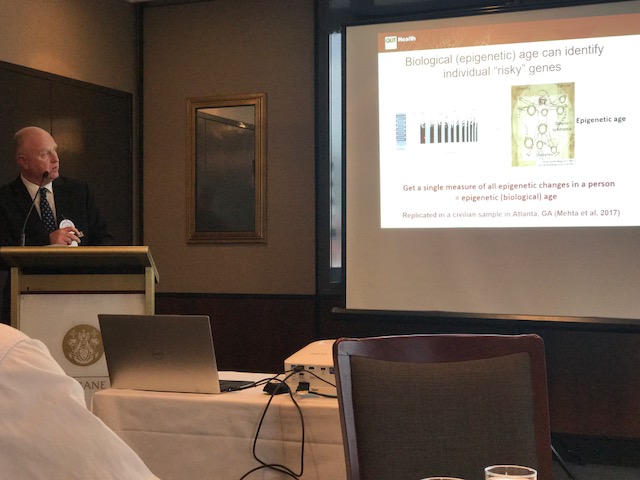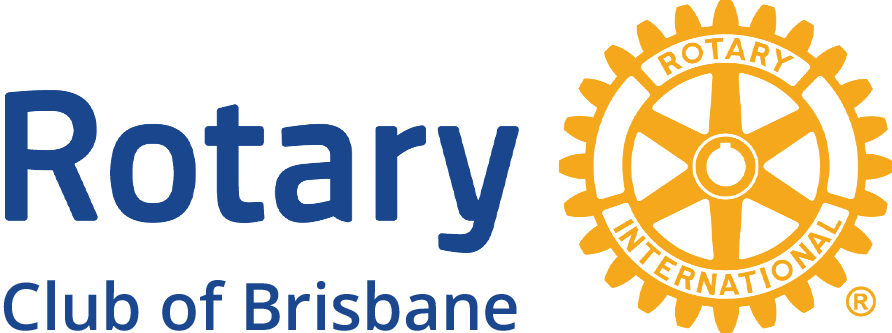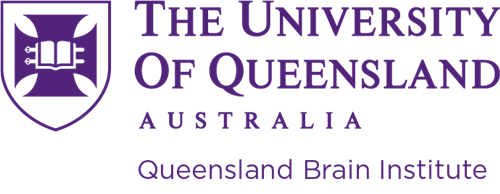Our guest speaker on September 24th was Professor Ross Young, Executive Dean of the Faculty of Health at Queensland University of Technology and his topic was a very interesting one - "The Epigenetics of PTSD"
Ross prefaced his talk with some discussion about the prevalence of PTSD among service personnel and first responders. We owe a great deal to these people, and we know that they pay for their service with their mental health. In fact, in modern wars it is likely that more personnel die from suicide than from battle trauma. Somewhere between 40% and 90% of these groups are exposed to situations that are known to provoke Post Traumatic Stress Disorder, and about 20% of Iraq and Afghanistan vets have developed or will develop PTSD. Some people develop PTSD and some don't. Ross's team have been asking the question "why?" and they have been getting interesting results.

Professor Ross Young Presents on the epigenetics of PTSD
The first question they asked is "does a person's predisposition to PTSD come from nature or nurture?" The answer is, as expected "both" but, perhaps more surprisingly, even the "nurture" part of the equation is influenced by changes in genetic makeup. Enter epigenetics. It turns out that, while ones DNA sequence does not change, whether or not genes are actually expressed in a person can be influenced by environmental factors such as stress, diet, exercise, toxic chemicals and the like. This happens through a process called "DNA methylation". Identical twins at birth will have identical gene expression, but as they grow older, their genes will be changed by their environment by this DNA methylation or "epigenetic aging".
Professor Young's team are using novel cutting-edge genomics technology to understand genes and biological pathways of health and disease. Specifically, they are examining the genome of veterans who have and have not developed PTSD to examine genome-wide DNA methylation to see if they can identify individual "risky" genes for PTSD, with some success. Some of their findings include the observation that exercise can be helpful both in slowing and maybe even reversing DNA methylation and the disturbing inference from their studies that these epigenetic changes can be inherited. Future directions include a focus on lifestyle, psychological and pharmacological interventions targeting epigenetic mechanisms.
The Rotary Club of Brisbane is grateful to Professor Young for bringing this interesting but highly technical topic to the meeting in a way such that lay people could at least follow the conversation. There were so many people lined up to ask questions at the end of the talk that Chair Daniel was forced to cut off discussion due to lack of time.



